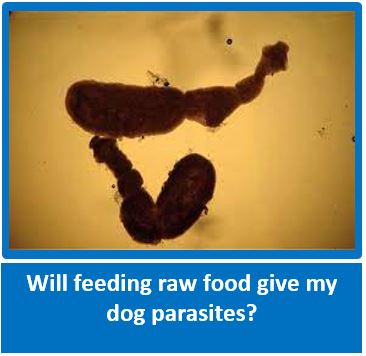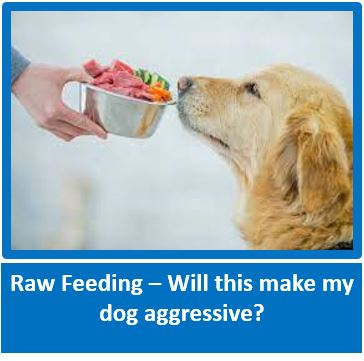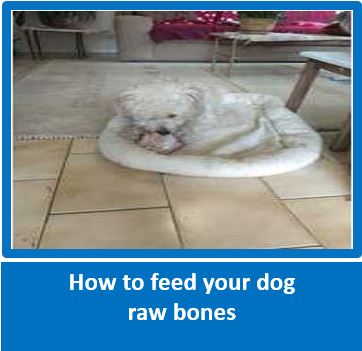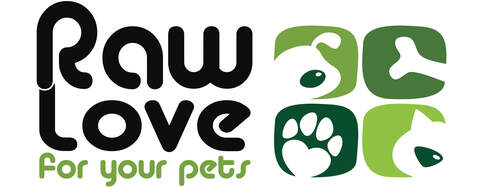
At Raw Love for Pets, our food is of the highest quality – the protein in our food is all free-range, and we are registered with the Dept of Health. We get the veggies, fruit & supplements from the same shops & farms where we buy our own supplies, including health shops and organic outlets – as an extra bonus for your dog, we use the fermentation process on veggies and fruit to make them more like a dog would eat in the wild. Raw diet improves the immune system and also assists with multiple health challenges, including allergies, dry & itchy skin, digestive problems, obesity, constipation and many more conditions. Available in Gauteng, Cape Town and surrounds and KZN. Do have a look at our website at www.rawlovepets.co.za and contact us if you have any questions.
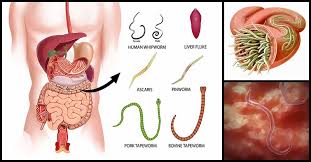
This is a myth made possible by our society's pathological fear of bacteria. Of the millions of bacteria on this earth, it is estimated that less than 1% are harmful.
Media and society as a whole have played up bacteria, painting it as an evil nemesis that must be stomped out with disinfectants, antibacterial everything, and unnecessary vaccination. This has resulted in the emergence of super-bacteria and "super-viruses", no thanks to the improper use of antibiotics and the plethora of antibacterial soaps and products. Developmental biologists have recently learned that bacterial exposure is absolutely necessary for the development of a healthy immune system, among other things. Humans and dogs have evolved in the presence of bacteria, and insisting on a sterile environment has created more damage than good. So where does this intersect with raw feeding?
Raw diet critics tout this myth as a main reason for not feeding raw.
Yes, there is bacteria in raw meat. Yes, this bacteria can harm you. Yes, this bacteria is sometimes shed in dogs' feces. So if a raw-fed dog licks you, are you going to get sick? I suppose all things are possible, but on the whole: no, you will not get sick. This bacteria does not persist in the mouth of a raw-fed canine. Canine saliva contains lysozyme, an enzyme that lyses and destroys bacteria, but more importantly, the absence of plaque means the dog's mouth is no longer a hospitable place for bacteria to inhabit. A kibble-fed dog's mouth, however, provides the perfect environment for bacteria growth: plaque-covered teeth with sugary and starchy complexes provide both food and shelter for bacteria. The bacteria thrive in the mouth of a kibble-fed dog because it provides both a perfect atmosphere and a good food source (Lonsdale, T. 2001. Raw Meaty Bones.). Why does a kibble-fed dog have stinky dog breath? Because of the bacteria in their gums and on their teeth (just like the bacteria in our mouths gives us halitosis). A raw-fed dog's mouth provides neither food nor a viable atmosphere for bacteria, which is why a raw-fed dog has odorless breath. So which dog would you be more worried about being kissed by and contracting disease from? I personally would be quite leery of the stinky-breathed, bacteria-laden kibble-fed dog. If one is still worried about being licked by a raw-fed dog, one has several solutions. Teach the dog not to lick, or avoid being licked. But if you have a healthy immune system, being licked and in contact with a raw-fed dog will not affect you other than boosting your immune system. This is the same thing for kids: being around and licked by a raw-fed dog will do nothing but boost their immune systems and help them grow up into happy, healthy adults.
As for dogs shedding bacteria in their feces: do not eat dog poo and wash your hands after feeding your dogs or cleaning up after them. Handle the raw meat you feed your dogs the same way you handle your own raw meat (which can get you sick if you eat it raw or do not clean up well enough afterward; do the experts really think that people are not smart enough to figure out that they should wash their hands and countertops after preparing raw meaty bones for their dogs? Apparently so.). If you have kids, teach the children not to eat dog poo and clean up immediately after your dog, and you will not need to worry. Bacteria is absolutely everywhere. You are just as likely, if not more likely, to get sick from your produce or a strange bathroom. You do not need to worry about the dog tracking bacteria through the house; there is plenty of bacteria throughout the house anyway, so any additional bacteria a raw-fed dog might add is negligible. Thousands of people—even immunocompromised people—feed their dogs raw with no bacteria issues and with stronger immune systems as a result.
Anti-raw people protest that raw-fed dogs pose a serious health risk to immunocompromised people and people with auto-immune disorders. Oddly enough, it is these immunocompromised people who have a better understanding of the important role nutrition plays in strengthening the immune system. A quick tour of the Yahoo! Raw feeding group will reveal quite a few people who have an auto-immune disorder but have been feeding their dogs raw for many years with no ill results whatsoever. Anti-raw people (vets included) make it sound like immuno-compromised people (and most other people) are incapable of properly handling raw meat and cleaning up afterwards. The solution proposed—do not feed raw meaty bones!—is absurdly condescending (they assume we cannot clean up after ourselves and are incapable of feeding our dogs because we lack a credential in pet nutrition), and skips the most logical step: simply observe proper hygiene and use the same precautions you use in preparing your own meat. It is not that difficult, honestly.
People proclaiming this "serious health risk" claim seem to think people are incapable of a) properly feeding their dogs and b) cleaning up after themselves. Use good hygiene practices: clean countertops and utensils used to feed dogs, and wash your hands. Feed the dog outside or inside on a towel or plastic-type tablecloth you can reuse and wash when needed. Or feed the dog in its crate, or on an easy-to-clean surface. By training the dog to eat in one place, you will not have to "worry" about him tracking a mess or bacteria through the house. If you are still concerned about bacteria, clean your dog's paws, mouth, etc. with a mild, safe antimicrobial like diluted white vinegar. Honestly, as long as proper hygiene is observed, the bacteria are a non-issue. Remember, you are sharing your life with an animal that licks its own rear and eats cat poop before licking your face.
For an excellent article on the risk of salmonella infection and rawfed pets, please click here (note, Adobe Acrobat Reader is needed).
Media and society as a whole have played up bacteria, painting it as an evil nemesis that must be stomped out with disinfectants, antibacterial everything, and unnecessary vaccination. This has resulted in the emergence of super-bacteria and "super-viruses", no thanks to the improper use of antibiotics and the plethora of antibacterial soaps and products. Developmental biologists have recently learned that bacterial exposure is absolutely necessary for the development of a healthy immune system, among other things. Humans and dogs have evolved in the presence of bacteria, and insisting on a sterile environment has created more damage than good. So where does this intersect with raw feeding?
Raw diet critics tout this myth as a main reason for not feeding raw.
Yes, there is bacteria in raw meat. Yes, this bacteria can harm you. Yes, this bacteria is sometimes shed in dogs' feces. So if a raw-fed dog licks you, are you going to get sick? I suppose all things are possible, but on the whole: no, you will not get sick. This bacteria does not persist in the mouth of a raw-fed canine. Canine saliva contains lysozyme, an enzyme that lyses and destroys bacteria, but more importantly, the absence of plaque means the dog's mouth is no longer a hospitable place for bacteria to inhabit. A kibble-fed dog's mouth, however, provides the perfect environment for bacteria growth: plaque-covered teeth with sugary and starchy complexes provide both food and shelter for bacteria. The bacteria thrive in the mouth of a kibble-fed dog because it provides both a perfect atmosphere and a good food source (Lonsdale, T. 2001. Raw Meaty Bones.). Why does a kibble-fed dog have stinky dog breath? Because of the bacteria in their gums and on their teeth (just like the bacteria in our mouths gives us halitosis). A raw-fed dog's mouth provides neither food nor a viable atmosphere for bacteria, which is why a raw-fed dog has odorless breath. So which dog would you be more worried about being kissed by and contracting disease from? I personally would be quite leery of the stinky-breathed, bacteria-laden kibble-fed dog. If one is still worried about being licked by a raw-fed dog, one has several solutions. Teach the dog not to lick, or avoid being licked. But if you have a healthy immune system, being licked and in contact with a raw-fed dog will not affect you other than boosting your immune system. This is the same thing for kids: being around and licked by a raw-fed dog will do nothing but boost their immune systems and help them grow up into happy, healthy adults.
As for dogs shedding bacteria in their feces: do not eat dog poo and wash your hands after feeding your dogs or cleaning up after them. Handle the raw meat you feed your dogs the same way you handle your own raw meat (which can get you sick if you eat it raw or do not clean up well enough afterward; do the experts really think that people are not smart enough to figure out that they should wash their hands and countertops after preparing raw meaty bones for their dogs? Apparently so.). If you have kids, teach the children not to eat dog poo and clean up immediately after your dog, and you will not need to worry. Bacteria is absolutely everywhere. You are just as likely, if not more likely, to get sick from your produce or a strange bathroom. You do not need to worry about the dog tracking bacteria through the house; there is plenty of bacteria throughout the house anyway, so any additional bacteria a raw-fed dog might add is negligible. Thousands of people—even immunocompromised people—feed their dogs raw with no bacteria issues and with stronger immune systems as a result.
Anti-raw people protest that raw-fed dogs pose a serious health risk to immunocompromised people and people with auto-immune disorders. Oddly enough, it is these immunocompromised people who have a better understanding of the important role nutrition plays in strengthening the immune system. A quick tour of the Yahoo! Raw feeding group will reveal quite a few people who have an auto-immune disorder but have been feeding their dogs raw for many years with no ill results whatsoever. Anti-raw people (vets included) make it sound like immuno-compromised people (and most other people) are incapable of properly handling raw meat and cleaning up afterwards. The solution proposed—do not feed raw meaty bones!—is absurdly condescending (they assume we cannot clean up after ourselves and are incapable of feeding our dogs because we lack a credential in pet nutrition), and skips the most logical step: simply observe proper hygiene and use the same precautions you use in preparing your own meat. It is not that difficult, honestly.
People proclaiming this "serious health risk" claim seem to think people are incapable of a) properly feeding their dogs and b) cleaning up after themselves. Use good hygiene practices: clean countertops and utensils used to feed dogs, and wash your hands. Feed the dog outside or inside on a towel or plastic-type tablecloth you can reuse and wash when needed. Or feed the dog in its crate, or on an easy-to-clean surface. By training the dog to eat in one place, you will not have to "worry" about him tracking a mess or bacteria through the house. If you are still concerned about bacteria, clean your dog's paws, mouth, etc. with a mild, safe antimicrobial like diluted white vinegar. Honestly, as long as proper hygiene is observed, the bacteria are a non-issue. Remember, you are sharing your life with an animal that licks its own rear and eats cat poop before licking your face.
For an excellent article on the risk of salmonella infection and rawfed pets, please click here (note, Adobe Acrobat Reader is needed).


